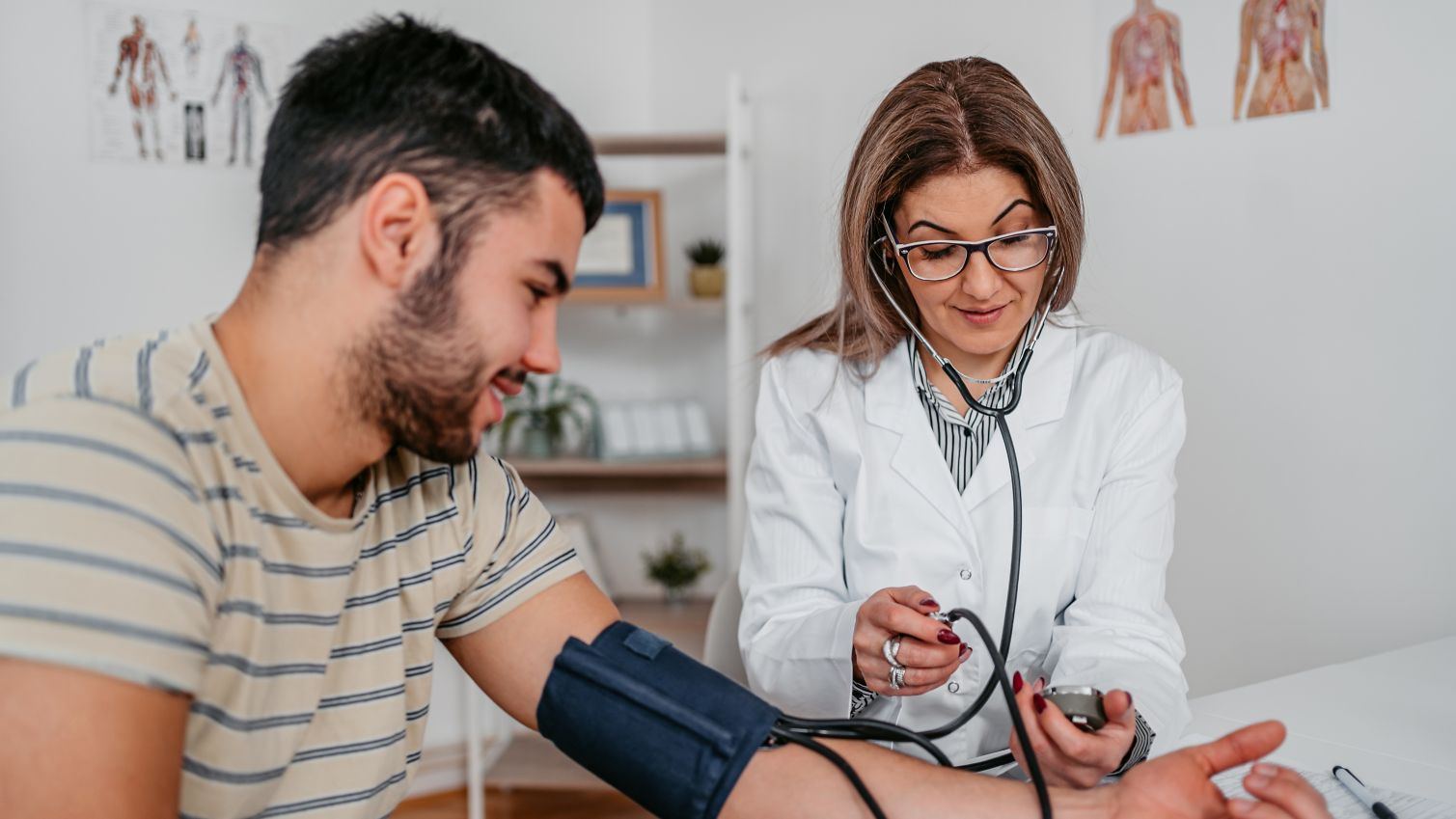Say no to the flu. A yearly flu vaccine is recommended for everyone 6 months and older. Get yours today!
High blood pressure, or hypertension
High blood pressure, also called hypertension, is very common. Almost half of all Americans have it.1 Often there are no symptoms, so you may have high blood pressure and not know it.

What is blood pressure?
Blood pressure is the pressure of blood pushing against the walls of your arteries. When the pressure in your vessels stays high too long, your doctor might say you have hypertension. Over time, hypertension can lead to heart disease, kidney disease, stroke, and even death.
How does blood pressure get high?
The exact causes of high blood pressure are not known. As we approach middle age, high blood pressure becomes more common. 2 Lifestyle factors, eating habits, and family medical history can play a part in your risk for developing high blood pressure. 3
Well visits are a great time to get tested
Getting your blood pressure measured is the only way to find out if it is high. Your doctor usually will test your blood pressure during a well visit.
Systolic and diastolic pressure
When your doctor talks to you about your blood pressure, they will tell you it’s one number over another number. Those two numbers are your systolic pressure and diastolic pressure.
The systolic is the pressure on your blood vessels when your heart pumps out blood.
The diastolic is the pressure between beats, when the heart rests. Blood fills the heart and pressure in the vessels drops.
By the numbers
- “Normal” blood pressure is 120/80 or under
- Stage 1 hypertension is blood pressure at or above 130/80
- Stage 2 is blood pressure at or above 140/904
Risk factors
Several factors can contribute to high blood pressure.
Risk factors you can control:
- Your diet and/or your weight
- How much you exercise
- How much you drink alcohol and/or smoke
Risk factors you cannot control:
- Age
- Ethnicity
- Family history
- Genetics
- Race
Having diabetes can also raise your risk for developing hypertension.
If you think you have some of these risk factors, talk to your doctor about your blood pressure.
In some cases, making some lifestyle changes is enough. Your doctor may suggest you take medicine to control your blood pressure. Talk to your doctor about how to control high blood pressure.
Having your blood pressure under control will help you have more healthy days and avoid other health issues.
Sources
- “Facts About Hypertension,” Centers for Disease Control and Prevention.
https://www.cdc.gov/bloodpressure/facts.htm opens in new window . Accessed October 24, 2022. - “High blood pressure: Why me?” Harvard Medical School.
https://www.health.harvard.edu/blog/high-blood-pressure-why-me-201605029288 opens in new window . Accessed October 24, 2022. - “High blood pressure: Why me?” Harvard Medical School.
https://www.health.harvard.edu/blog/high-blood-pressure-why-me-201605029288 opens in new window . Accessed October 24, 2022. - “Facts About Hypertension,” Centers for Disease Control and Prevention.
https://www.cdc.gov/bloodpressure/facts.htm opens in new window . Accessed October 24, 2022. - “Know Your Risk for High Blood Pressure,” Centers for Disease Control and Prevention.
https://www.cdc.gov/bloodpressure/risk_factors.htm opens in new window . Accessed October 24, 2022.
Humana Healthy Horizons in Florida
Overview of Medicaid coverage Long-Term Care coverage Extras Member support Health and wellness Adult wellness visits Asthma Attention Deficit Hyperactivity Disorder (ADHD) Autism Spectrum Disorder (ASD) Childhood obesity Colorectal cancer Diabetes management Flu Human papillomavirus Hypertension Sickle cell disease Tobacco cessation Weight Management Contact us Accessibility
Looking for help?
Contact Us
If you have questions, find the number you need to get help and support.
Find a doctor
Documents & forms
Find the documents and forms you need to manage your Humana Florida Medicaid plan, including your Member Handbook.